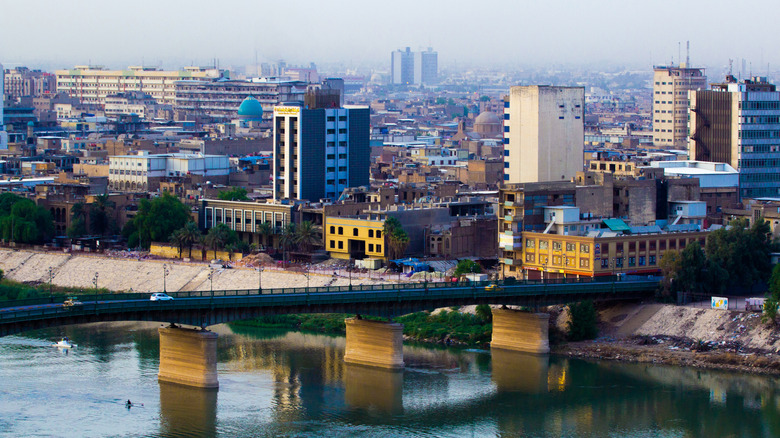Iraqi 'Starbucks' Locations Shine Light On Major Counterfeiting Issues
If you were to go to Iraq on business, you might be pleased to see that you can still get your morning coffee at one of three Starbucks locations in Baghdad. Or can you? According to a new report by the Associated Press, these coffee shops are not actually Starbucks shops at all, but rather carefully designed copycat shops that are flagrantly violating the multi-billion-dollar coffee company's trademarks. The AP reports that the three shops are easy to mistake for the real thing because the violations are so blatant.
The signage outside the shops is identical to those at Starbucks locations elsewhere, the cups, napkins, and drink stirrers are all the same and the owner of these faux-Starbucks shops even claims the coffee itself is the same. Yet said owner, Amin Makhsusi, does not actually officially claim these are licensed Starbucks shops when questioned. Instead, he freely admits he was denied a franchising license from Starbucks' corporate Middle East division and decided to create his own anyway by importing official Starbucks merchandise and product from an associate in Turkey.
While this blatant theft of a company's trademarked or copyrighted material for profit is obviously illegal, it is part of a larger trend in Iraq, with the International Trade Association specifically stating in documents as recently as 2021 that "it is important for businesses to have an overall strategy to protect their Intellectual Property in Iraq," as it is protected differently there through local laws.
Intellectual property in Iraq
Starbucks is hardly the only victim of large-scale counterfeiting and piracy operations in Iraq, it's simply the highest-profile American company to face it. According to the Associated Press, the country is also a hotbed for media piracy with Qatari broadcasting company beIN complaining that it has lost over $1.2 billion in profits over the years from Iraqi groups pirating its content through the use of illegal IPTV streaming services. Furthermore, several major pharmaceutical companies reported anonymously that their patents and trademarks are being violated within the country.
Unfortunately, it is unclear what can be done about the situation as the Iraqi government has failed to address it. As the AP notes, even Starbucks, a company worth $113 billion according to Stock Analysis, is relatively powerless to stop this. When the company attempted to force Makhsusi to cease his operations, he issued thinly veiled threats to their lawyers bragging of his connections to militant groups and government officials.
Makhsusi denies these specific allegations but proudly boasts of his business venture as a triumph over adversity. "I had this ambition to open Starbucks in Iraq," he explained. After he was denied a license he said, "I decided to do it anyway and bear the consequences." So far it is not obvious what those consequences might be as Starbucks is forced to "evaluate its options."

